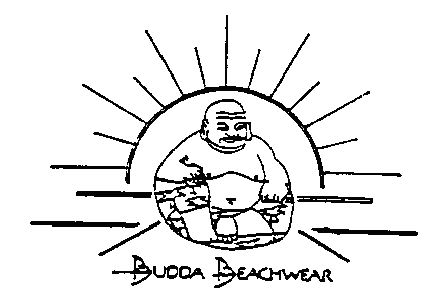Trademark Trial and Appeal Board
Patent and Trademark Office (P.T.O.)
*1 IN RE RICHARD M. HINES
Serial No. 74/037,972
September 23, 1994
Robert Clark
Trademark Examining Attorney
Law Office 15
(Paul Fahrenkopf, Managing Attorney)
Before Seeherman, Hanak and Quinn
Administrative Trademark Judges
Opinion by Quinn
Administrative Trademark Judge
The Board, in a decision dated June 10, 1994, affirmed the refusal to register on the ground that the applied-for mark shown below
is disparaging as contemplated under Section 2(a) of the Trademark Act.
Applicant timely filed a request for reconsideration. Applicant essentially argues that the Office did not sustain its burden of proof, and that what evidence there is of record raises doubts as to whether applicant's mark is disparaging of Buddhism or Buddhists. Accordingly, applicant urges that the mark be published for opposition. Alternatively, applicant requests that the case be remanded to the Examining Attorney to consider newly-obtained evidence showing that persons in the Buddhist community do not consider applicant's mark to be disparaging, and to consider other registrations of marks featuring the name or depiction of religious figures. [FN1]
Upon further reflection, the Board is persuaded that the applied-for mark should be passed to publication. Of particular significance to the Board in reconsidering the original decision in this appeal is a recent decision of the United States Court of Appeals for the Federal Circuit, the Board's primary reviewing court. The Federal Circuit vacated the Board's decision that BLACK TAIL for adult entertainment magazines is scandalous under Section 2(a) of the Act. In re Mavety Media Group Ltd., --- USPQ2d ----, Appeal No. 93-1464, Ser. No. 74/066,893 (Fed.Cir. August 23, 1994). The case was remanded to the Board for "further proceedings," one option being for the Board to "simply pass the mark for publication to permit interested members of the public to demonstrate through an opposition proceeding that a substantial composite of the general public would consider the mark scandalous."
The Court in In re Mavety Media Group Ltd. pointed to the nonvulgar definitions of "tail" and concluded that the Board, "[a]rmed with only personal opinions and dictionary sources," erred in "concluding that in the context of the adult entertainment magazine, the substantial composite of the general public would necessarily attach to the mark BLACK TAIL the vulgar meaning of 'tail' as a female sexual partner, rather than the admittedly non-vulgar meaning of 'tail' as rear end." The Court also noted "the view of our predecessor court that the § 1052(a) prohibition against scandalous marks is not 'an attempt to legislate morality, but, rather, a judgment by the Congress that such marks not occupy the time, services, and use of funds of the federal government.' " [citation omitted]. The Court went on to
therefore commend the practice adopted by the Board in another case to resolve the issue whether a mark comprises scandalous matter under § 1052(a) "in favor of [the] applicant and pass the mark for publication with the knowledge that if a group does find the mark to be scandalous ..., an opposition proceeding can be brought and a more complete record can be established." In re In Over Our Heads Inc., 16 USPQ2d at 1654-55.
*2 In the original decision in the present appeal, the Board acknowledged that the determination here of whether a mark is disparaging is necessarily a highly subjective one, "perhaps being all the more subjective due to the relative obscurity of Buddhism in this country."
The Court in In re Mavety Media Group Ltd. made the following point:
[E]ven if the members of this panel personally find the mark BLACK TAIL disgustingly scandalous, the legal conclusion that a trademark comprises scandalous matter must derive from the perspective of the substantial composite. To be sure, appellate judges are a part of the composite of the general public, but they represent only a tiny fraction of the whole, which necessarily encompasses a wondrous diversity of thought. Although constantly at odds, progressive views and conservative or traditional thinking participate alike in the formation of the composite of the general public. While we recognize the inherent difficulty in fashioning a single objective measure like a substantial composite of the general public from the myriad of subjective viewpoints, we are duty bound to apply the standard set forth by our predecessor court.
Although the Court in In re Mavety Media Group Ltd. was discussing the public reaction to a scandalous mark, and the present case involves a mark that may disparage a religion or religious figure, the principles expressed by the Court still apply. Thus, when the original decision in this appeal is reexamined with the benefit of the Court's most recent views on these types of cases, it is imperative that the Board be careful to avoid interposing its own judgment for that of Buddhists.
Accordingly, reconsideration of the present record, in light of the Court's recent decision, raises concerns not unlike the Court's concerns expressed in In re Mavety Media Group Ltd. Lest the Board be similarly characterized here as being "armed with only personal opinions and [encyclopedia] sources," we now are persuaded to publish the mark for opposition.
Applicant's request for reconsideration is granted. The Board's decision dated June 10, 1994 is vacated. The refusal to register is reversed and the mark will be passed to publication.
E.J. Seeherman
T.J. Quinn
Administrative Trademark Judges, Trademark Trial and Appeal Board
FN1. Applicant attached additional third-party registrations to his request for reconsideration. However, as applicant himself acknowledged, these registrations do not form part of the record under consideration in this appeal.
CONCURRING OPINION
E. W. Hanak
Administrative Trademark Judge
For the reasons set forth in my dissenting opinion of June 10, 1994 (31 USPQ2d 1685), I concur with the decision to pass the mark for publication.


